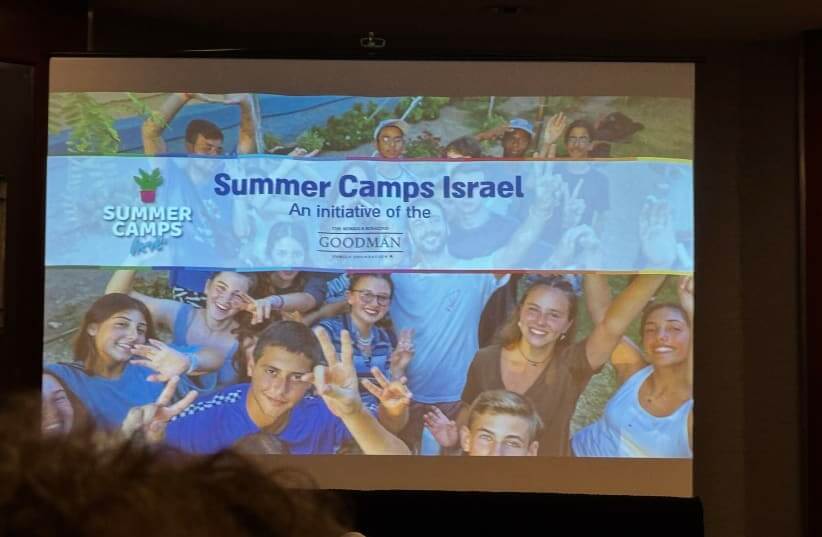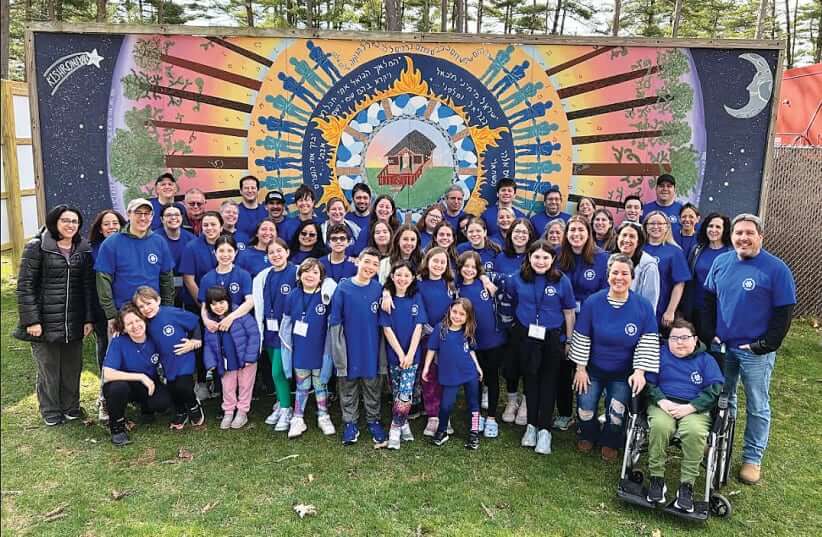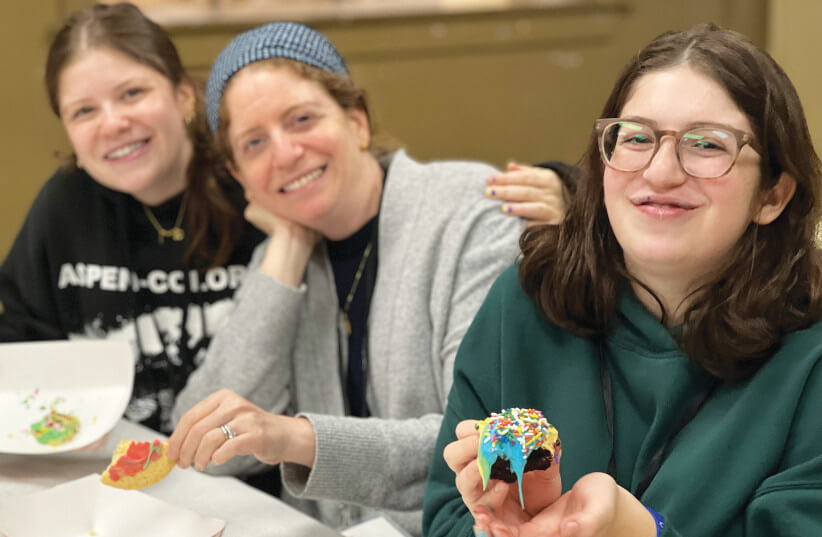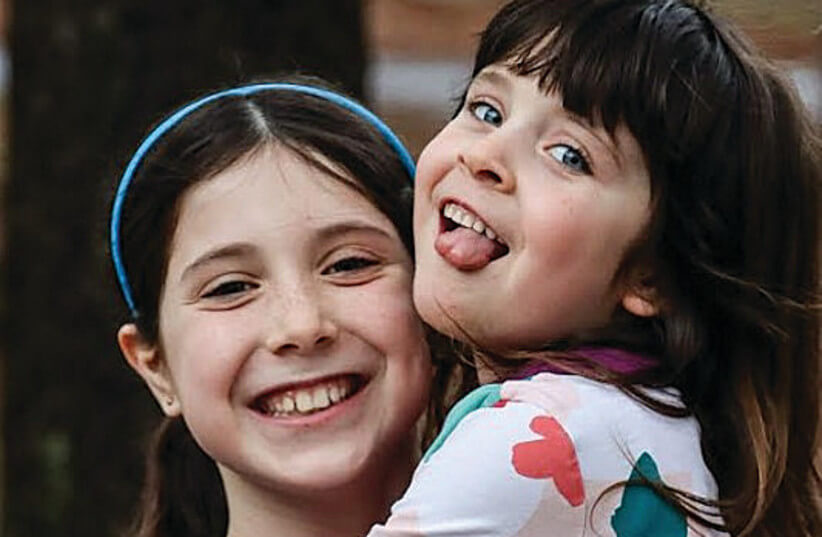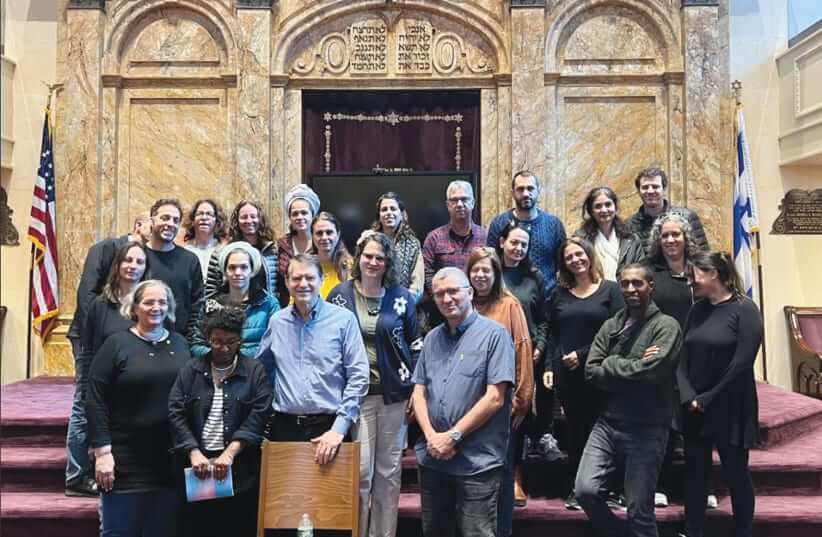More than 950 camp professionals, board members and funders gathered in Chicago for the Foundation for Jewish Camps’ three-day Jewish Camp Summit earlier this month.(photo credit: HOWARD BLAS)
DIASPORA AFFAIRS: Bringing Israeli campers and staff to Jewish summer camps created opportunities for North Americans to have ongoing, meaningful relationships with Israel.
By HOWARD BLASDECEMBER 20, 2024 12:48
You can view the original post at The Jerusalem Post
When more than 950 day and overnight camp professionals, board members, and funders gathered in Chicago for the Foundation for Jewish Camp’s three-day Jewish camp summit earlier this month, it had the feel of a camp reunion, academic conference, and trade show all in one.
There were plenary sessions featuring such Jewish community notables as Julie Beren Platt, chairwoman of the board of trustees of the Jewish Federations of North America and immediate past chairwoman of FJC, in dialogue with one of her famous sons, podcaster Jonah Platt, on the topic of “Scaling Jewish Joy and Identity.” Another plenary included two former congressmen – Ted Deutch (current CEO of the American Jewish Committee) and Eric Fingerhut (CEO of JFNA).
The conference included sessions extolling the benefits of Jewish summer camping and its commitment to and deep connection with Israel and Israelis (over 3,000 Israelis worked at nearly 200 Jewish day and overnight camps this summer), and others addressing a smorgasbord of camp-related topics, including building connections between North American and Israeli staff, year-round camper care, emergency preparedness, inclusion, character development, parents as partners, gender dynamics, and mental health.Top ArticlesRead More
More Diaspora Jews interested in immigrating to Israel post-Oct. 7
Participants at the 10th biennial Leaders Assembly enjoyed a welcome reception on Monday (with a band paying tunes of David Broza and other camp favorites), Tuesday on-site intensives (including sessions on “Engaging the Israeli-Palestinian Conflict at Camp: Exploring Challenges and Opportunities”) and off-site trips, and Wednesday’s “Wear Your Camp Swag” day – though attire for the conference was officially listed as “camp business casual.”
Conference attendees came together for meals, had the option to pray in a variety of styles, and had ample time to schmooze with or friend or walk through the “shuk” to gather pens, bags, candy, stickers, brochures, and other free stuff while learning about climbing equipment, luggage shipping (from Door-Va-Door Tucking), various Israel programs and Camp Medical Services. When vendors were on break, their tables featured such playful campy signs as “Preparing for the talent show – be right back,” “Tie-dyeing my socks – be right back,” and “Roasting marshmallows – be right back.”

FJC advocates for over 300 day and overnight camps which provide nearly 190,000 campers and counselors each summer with a meaningful, personal, and lifelong connection to Judaism. They regularly bring stakeholders in the camping world together to learn of trends, new initiatives, and funding for Jewish camping.
At the conference, Jeremy J. Fingerman, CEO of the organization, founded in 1998, shared data on the importance, success, and growth of Jewish camping.
According to surveys of the 2024 camp season:
• Nine in 10 families reported that camp created an environment that supported their children’s social and emotional health and well-being.
• 85% of camp staff felt that camp connected them to feeling a part of the worldwide Jewish community.
• 94% of parents shared that camp connected their child to the global Jewish community
• 80% of North American overnight camp staff said camp helped them to connect to Israel and Israeli staff.
Fingerman and members of the FJC team reported on camping’s recovery from the recent pandemic, as evidenced by the impressive numbers of campers and staff attending and working at Jewish day and overnight camps in North America this past summer.
They noted that high enrollment is stretching camps’ current infrastructure, and at least a quarter of its camps are operating at or near full capacity. Many have been developing plans to increase their ability to serve more young people – and will surely benefit from a $15 million gift from the Gottesman Fund which Fingerman announced at the conference.
“This new funding will facilitate field growth and enable camps to boost enrollment at a time when so many are seeking positive Jewish experiences and Jewish camp is playing an even more important role,” Fingerman reported.
Diane Eidman, director at the Gottesman Fund, added, “We’re thrilled to partner with Foundation for Jewish Camp to offer funding for capital improvement projects so that camps can enroll more campers, hire more staff, and deliver higher-quality experiences to every member of the community.
“One of our top priorities is enhancing and perpetuating Jewish life in the United States – and it’s hard to think of an experience that’s more formative for young Jews than camp.”
With the generous support of The Gottesman Fund, FJC will be able to offer the funding for capital expansion projects through 2027, with individual grants of up to $750,000 per camp to cover up to 50% of the total project cost. The funding will focus on three areas: $5m. for staff and family housing to increase staff retention, $7m. for program spaces to modernize infrastructure and bolster climate resilience, and $3m. for camper bunks to help increase capacity.
Jamie Simon, FJC’s chief program and strategy officer, offered, “This summer and beyond, we’re committed to ensuring that every camp has the resources they need to provide fun, safe, and meaningful experiences for tens of thousands of young Jews.”
THIS PAST summer, 3,000 Israelis worked at over 200 Jewish camps in North America, and campers from the Gaza border communities and evacuees from northern towns also participated in summer camping.
FJC’s commitment to enhancing personal connections between Diaspora and Israeli Jews was apparent at many conference sessions.
In a session titled “Building Connections Between North American and Israeli Staff,” Or Pode of Kibbutz Zikim and director of youth for the Hof Ashkelon Regional Council, said, “The relationship between Israel and the Diaspora works. We are from the same womb and nurtured on the same values. When I was in pain, you were hurting; with antisemitism, we are here for you, building bridges.”
Pode helped bring 200 campers to six different camps as part of Campers2Gether, a new initiative of the Jewish Agency and Mosaic Teens, a division of Mosaic United, in partnership with the Foundation for Jewish Camp. The program sought to bring 1,500 Israeli teenagers who have been displaced or otherwise affected by the war to Jewish camps in North America and across the Jewish world in the summer of 2024.
At Tuesday morning’s “Summer Camp in Israel and Jewish Agency Campers2Gether” breakfast, Carly Weinstock, director of Camp Tamarack in Michigan, shared the artwork created in an art elective by Israeli campers who came to her camp from Gevim and Be’eri.
She noted that the camp social worker found the first week to be particularly challenging, and added that camp was extremely beneficial and therapeutic. “It was interesting to see the transformation in the children from the first week to the last,” she observed, and added that, for the Israelis who lived through October 7, “five days in camp was like five years in therapy.”
Bringing Israeli campers and staff to Jewish summer camps this summer in particular created opportunities for North Americans to have ongoing, meaningful relationships with Israel and Israelis and to more closely connect to the war and to the plight of the hostages.
Hanoch Greenberg, director of the Summer Shlichut Program for North America at the Jewish Agency, and Dan Tatar, director of engagement and strategic partnerships at the iCenter, shared a nuanced presentation on the emissary experience this summer.
While most camps enthusiastically brought emissaries to their camps and carefully and thoughtfully prepared them for the unique summer ahead, Greenberg acknowledged that at least one camp “had a vocal donor opposed to emissaries” and refused to bring emissaries to camp this summer. In contrast, he noted, “Some camps said, ‘now more than ever we need them.’” Greenberg and Tatar noted that this was a summer where the discussion partially moved from the “how” of bringing emissaries to the “why.”
Greenberg reported on the experiences of emissaries this summer as compared to past summers, noting, “Israeli staff were grieving over the ongoing crisis. The continuation of the war put the emissaries in a tough place.” To help them, some camps had Hebrew-speaking social workers on-site, which Greenberg noted was “a tremendous act of support,” along with a Jewish Agency hotline offering help and support for the emissaries.
The FJC audience was somewhat surprised to learn that some emissaries were nervous about coming to camps after following the rise in reports of antisemitism in North America.
“Parents of some of the emissaries – even of those who just returned from fighting in Gaza – were nervous and called me to say they were not letting their children come,” Greenberg shared. “I had never before heard this concern about antisemitism.”
Greenberg and Tatar noted the importance of a pre-camp connection between emissaries and the camps. This relationship begins in February with emissaries training in Israel and often continues beyond the summer as meaningful, caring relationships form between Israelis and North Americans.
Greenberg shared stories of Americans reaching out to emissaries post-camp to ask “Is there anything I can do?” when they heard that sirens went off in their hometowns. He reported on emissaries who returned home feeling that “someone cares about me” and feeling “part of a larger family.”
Greenberg and Tatar encouraged camps to carefully plan for the summer by anticipating potential issues and problems that might emerge around the topic of Israel. “They should consider, if there is a clash, who handles it?” The two said unsurprisingly, “Those camps with plans in place had fewer clashes.” Greenberg noted that camps tended to “fall into three categories: those who plan for the summer; those who say ‘let’s not talk about Israel – it is too controversial’; and those who have no plan.”
Greenberg, who spent 19 summers at Union for Reform Judaism’s Camp Coleman in Georgia, is pleased with this past summer’s emissary program “despite all the challenges.” He added, “We can’t ignore all the great things the emissaries achieved.” He stressed how the emissary experience is “mutually beneficial” and that “each side benefits – both the Israelis and the North Americans.”
FINGERMAN is proud of FJC’s initiatives to promote and teach about Israel, and reported that FJC has already awarded $370,000 in Israel education grants to 72 day and overnight camps. At the conference, Fingerman announced several new opportunities designed to elevate Israel education, programming, and resources at Jewish camp for summer 2025 and beyond.
They include the Teaching Israel at Camp initiative, where FJC will provide grants to 60 camps to fund the salary and programmatic efforts of a dedicated head of Israel education. This represents an extraordinary investment of over $1.5m. in Israel education.
Shalom Bayit will offer workshops and coaching to provide camp leaders with the tools to create communities of trust and mutual understanding.
Elevate Israel, a collaboration with the Spertus Institute, will offer seminars and virtual sessions to camp professionals to deepen their knowledge of Israel and its history.
Jewish Camp Israel Trip Incubator will provide 10 overnight camps that do not currently run an Israel trip with the know-how to create trips that align with their values and goals.
Expanding North American-style Jewish summer camping
Meanwhile, back in Israel, Shawna Goodman is working to expand North American-style Jewish summer camping. She created Summer Camps Israel and brought 17 Israel camp directors who operate a wide variety of programs to experience the FJC conference in Chicago.
Goodman, a chef by training, playfully noted that she is a “bridger and a blender,” and offered that her camps have five key components: They are immersive; they mix populations together for “tikkun” (repair); they have a volunteer component; they feature “joyful Judaism”; and they are device-free.” This summer, they provided camping experience to 14,000 Israelis, including over 1,000 evacuees. She hopes to offer camping to over 18,000 children next summer.
Jewish summer camping is alive, growing, and evolving, as camps provide meaningful Jewish and Israel experiences to children and young adults in both North America and Israel.
